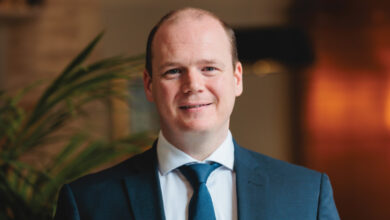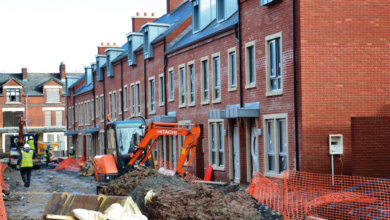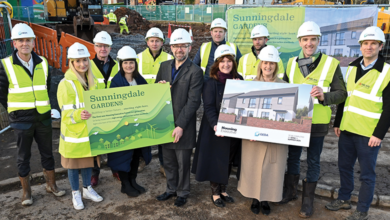Homelessness crisis

A rush back to ‘normal’ would be a failure to recognise the pre-existing homelessness crisis in Northern Ireland, writes David Whelan.
To some extent, the pandemic-induced response to Northern Ireland’s growing homelessness crisis obscured the realities of an area already in dire need of intervention. The mammoth task undertaken by statutory bodies and stakeholders to get people suitable accommodation in the middle of a public health emergency is to be commended but as they themselves will tell you, the sticking plaster is already starting to loosen.
There is a common argument circulating since March 2020 that the response the pandemic, which saw rough sleepers removed from the streets of Belfast and Derry and placed into temporary accommodation, is evidence that Northern Ireland’s homelessness challenge is easily solvable, with the right resources and attention.
Unfortunately, the homelessness crisis in Northern Ireland is far more complex. The first thing to highlight is that while rough sleeping is one of the more extreme manifestations of homelessness and often includes those with the most acute needs, homelessness in Northern Ireland is a challenge on a much broader scale and ranges from people staying in temporary accommodation, staying with friends or family and continuing to live in unsuitable housing conditions.
The second issue is the need for recognition that what has occurred over the last year has been an emergency response to a crisis situation. Extra resources made available following the arrival of Covid-19 in Ireland were a critical factor in ensuring that accommodation was made available, not only for rough sleepers but also to facilitate social distancing in shared accommodations and enable self-isolation when needed. However, other factors made this response possible. A prime example was the absence of tourists and some students, meaning that temporary accommodation was more readily available.
Physical infrastructure itself is only part of the solution to end homelessness. Support services play a key role in getting people into accommodation, sustaining their tenancy, and also offering alternative pathways to prevent homelessness occurring again. Ensuring these support services are and will continue to be available to all of those in need is a significant challenge. There is a genuine concern that unless action is taken to ensure accommodation and services are sustainable, people will be forced to return to rough sleeping.
Thirdly, it is unclear what the homelessness situation will look like post-pandemic, however, an increase in homeless presenters is often aligned to times of economic decline. It is quite likely that post-pandemic, Northern Ireland’s homelessness crisis will be compounded further. Jim Dennison, Chief Executive of the Simon Community recently outlined his understanding that housing support need is currently 14 per cent higher than supply and put a 10-year projection on the increase of homeless presenters at between 30 to 43 per cent.
A return to ‘normal’ will not be adequate to solve the homelessness crisis.
Assessing the scale of the challenge, between July to December in 2020, 7,971 households presented as homeless. Of the 4,849 households accepted as statutorily homeless, a third were families and almost 15 per cent were pensioner households. Included in these figures were 3,136 children.
On 4 January 2021, a total of 3,140 households were in temporary accommodation, 37 per cent of whom had been so for more than a year. Over 94 households had lived in temporary accommodation for more than five years.
Added to this is Northern Ireland’s growing social housing waiting list. By 31 December 2020, 42,665 people were on the social housing waiting list. The likelihood that Covid-19 will compound an existing problem in relation to housing availability can be seen in rising figures even pre-pandemic. The 2.3 per cent rise recorded in March 2020 from the previous year, was the highest figure (38,745) Northern Ireland had seen for years. By December of the same year, this figure had risen by 10 per cent.
“The goal should not be to go back to the pre-Covid position; it should be to work towards a better position.”
One of the concerns raised has been the lack of success of attempts to reverse the growing number of homelessness households in Northern Ireland. Various strategies and action plans have been rolled out over the last decade including the Housing Executive’s (with statutory responsibility for responding to homelessness) most recent Homelessness Reset Plan and its Ending Homelessness Together Strategy 2017-2022. As well as this, the Department for Communities has issued a number of interdepartmental homeless action plans and other cross-departmental initiatives have been initiated in the past. Undoubtedly, past efforts have played a role in tackling homelessness in Northern Ireland, but none can point to any form of major success when looking at the overall ambition of ending, or dramatically reducing, homelessness.
Those involved in the sector have called for a new approach and a positive sign that progress may be on the horizon is the establishment of taskforce in response to the pandemic, which looks set to play a leading role in the co-design of the Housing Executive’s new homelessness strategy for 2022-2027, which is currently underdeveloped.
The taskforce, encompassing statutory bodies and leading charities operating in the sector was credited with the efficient response to the pandemic and part of its remit will be to not only investigate how homelessness services coped during the pandemic but also outline necessary changes for the short to medium term, and recommend preparations for longer-term challenges.
An encouraging sign that a return to ‘normal’ should not be considered a success, the Housing Executive’s Homelessness Reset Plan states: “The goal should not be to go back to the pre-Covid position; it should be to work towards a better position.”
Another encouraging sign is greater recognition that the Housing Executive must be supported in its statutory duty and that the crisis needs to be tackled on a cross-Executive basis. A new All-Party Group on Homelessness set up in the Northern Ireland Assembly should help focus attention on the broader issues such as housing supply, prevention services and support services.
As should fresh indicators under a new Programme for Government (PfG). Criticism has been levelled at the absence of a specific outcome for housing in the draft PfG circulated for consultation. The New Decade, New Approach agreement committed to a new outcome and indicators to provide a focus on “ensuring every household has access to a good-quality, affordable and sustainable home that is appropriate for its needs”, however, housing is not one of the nine overarching outcomes outlined so far. Homelessness and suitable housing for all citizens does feature as indicators within three of the nine wellbeing outcomes.
Housing Minister Deirdre Hargey has stated her desire to see housing as a standalone outcome for the forthcoming PfG.
The Minister has indicated tackling homelessness as a priority in ambitious plans for transformation of the sector, not least revitalisation of the Housing Executive. Speaking recently to agendaNi, Hargey indicated a recognition that homelessness was not a challenge that could be tackled in isolation and would require a whole-system approach.
Undoubtedly, this approach will have to encompass sweeping change to ensure that the approach to homelessness not only improves through learnings of the pandemic but acknowledges the extent of the problem which existed prior to Covid-19 and acknowledges the challenge for what it is, a homelessness crisis.





